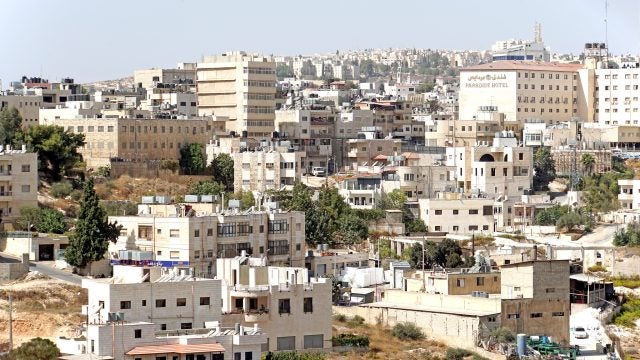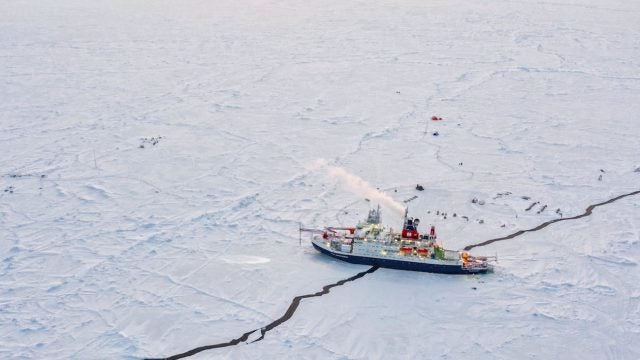
Title: The Amazon as a State Matter: Exploring the Role of Military in Forest Governance
Under President Jair Bolsonaro, deforestation of Brazil’s Amazon rainforest surged as the government cut the budgets of environmental protection bodies and submitted them to military control. In 2023, newly elected President Luiz Inácio Lula da Silva deployed the Armed Forces to address the humanitarian crisis caused by the impact of illegal mining on the Yanomami people living in the Amazon, but the military failed to target criminal infrastructure. This article argues that the Brazilian Armed Forces should play a greater role in Amazon rainforest governance, but not before major institutional reforms.
The rise in environmental crimes in the Brazilian Amazon reflects the growing scale of transnational groups conducting illegal resource exploitation. Their schemes are sensitive to political trends, as they intensify when deregulation policies prevail in debates and politicians with strident anti-environmental rhetoric gain support in the polls. For example, Jair Bolsonaro, a retired army captain and congressman, ran for the Brazilian presidency in a campaign that fiercely opposed forest conservation policies and portrayed environmental NGOs as part of a foreign conspiracy against Brazil’s national sovereignty. When he won the presidency in 2018, farmers thus saw the green light to seize or expand their properties through land-grabbing.
The military’s presence in the Amazon is grounded in the Armed Forces’ constitutional mandate to operate along Brazil’s borders, ensuring the defense of the nation’s territory and sovereignty. However, Brazilian President Luiz Inácio Lula da Silva has proposed expanding their responsibilities to include combating drug trafficking and environmental crimes in the region. The military presently cooperates with the Federal Police and environmental agencies but has no legal obligation to counter deforestation. Its involvement ranges from irregular logistical support for environmental bodies to tacit complicity with illegal deforestation on the assumption that it might foster regional development and demographic growth.
The Bolsonaro administration highlighted the extent to which the military’s role in the Amazon is subject to the federal executive’s stance on environmental conservation. When the government is less committed to environmental policies, the military’s interventions can become passive, or even permissive, toward environmental degradation. Therefore, it is crucial not only to formalize and regulate the military’s institutional participation in protecting the Amazon but also to develop mechanisms that ensure the commitment of the Brazilian Armed Forces to the defense of the Amazon rainforest. Strengthening this commitment would provide consistency and continuity in their role and reinforce long-term conservation efforts in the region independent of changing political administrations.
The militarization of environmental governance under Bolsonaro
By 2022, Bolsonaro cut the budget of agencies responsible for monitoring and controlling deforestation by 71 percent. As a result, miners and timber smugglers were emboldened to escalate their environmental crimes, pushing the limits of Bolsonaro’s rigid deregulation agenda. In 2019, the National Institute for Space Research (INPE) estimated the deforested area in the Amazon to be 9,762 square kilometers, reflecting an increase of 29.54 percent from the previous year. Despite the prestige of the INPE in the scientific community, Bolsonaro questioned the data without presenting any contradicting evidence and replaced its director, Ricardo Galvão, with Air Force Colonel Darcton Damião. However, the appointment prompted backlash from INPE employees, who accused the military of negatively interfering in the Institute’s mandate for scientific research.
Bolsonaro responded to the mounting pressure by putting the Legal Amazon Council in charge of “coordinating and monitoring the implementation of public policies related to the Legal Amazon.” The Council’s responsibilities remained rather vague, but its composition—19 high-ranking military officials under the command of Vice President General Mourão, with no representatives from environmental preservation bodies—revealed Bolsonaro’s resistance to environmental protection. Bolsonaro’s decision designated the Council as independent from the Ministry of the Environment, cementing the military’s role in environmental policymaking.
According to the Brazilian Association of Investigative Journalism (ABRAJI), 99 military personnel held commissioned positions in nine federal agencies responsible for managing socio-environmental policies, such as the Brazilian Institute of Environment and Renewable Natural Resources (IBAMA), the Chico Mendes Institute for Biodiversity Conservation (ICMBio), and the National Indian Foundation (FUNAI). These agencies had engaged in environmental preservation and the defense of Indigenous peoples’ rights for decades, but scientists, career servants, and environmental activists blamed Bolsonaro for dismantling their organizations. Not only did he deprive them of necessary material resources, but he also compromised their autonomy by appointing military officers to their organizations.
The Yanomami Crisis
After his electoral victory over Jair Bolsonaro in 2022, President Lula reestablished the National Environment Council (CONAMA) and appointed civilian leaders for IBAMA, FUNAI, and ICMBio. The new government also resumed the Action Plan for the Prevention and Control of Deforestation in the Legal Amazon (PPCDAm), which provides for the hiring of 1,600 environmental analysts and the restoration of deforested or degraded areas, including agro-extractive settlement projects. These reforms proved successful: deforestation in the Amazon decreased by 43 percent in 2023. However, problems in the institutional relationship with the Armed Forces have remained the primary obstacle to the Lula government’s response to the humanitarian crisis afflicting the Yanomami, an Indigenous group of the Amazon.
In January 2023, the activities of 20,000 illegal miners on the border between Brazil and Venezuela led to a health emergency among Indigenous people. Gold miners invaded Yanomami territory and contaminated the rivers and soil with mercury, deteriorating the water and food supply while simultaneously carrying out further deforestation. Due to the environmental impacts of mining, malnutrition, disease, and infant mortality worsened. According to the Ministry of Health, more than 570 Yanomami children have died in the last four years.
The government published a plan to handle the crisis that involved various ministries, including the Ministry of Defense. According to Decree No. 11.405, the Armed Forces would be responsible for the security of the Yanomami and the transport of health professionals as well as FUNAI and IBAMA agents into the region, where they would provide intelligence data and monitor the airspace above Yanomami territory. During the most ostensive period of repression, the Federal Police arrested some illegal miners, but the large majority of these environmental criminals fled. In early 2024, about three thousand miners had regained ground in Yanomami’s lands. They had returned because enforcement dwindled after May 2023, and the miners could resume the smuggling of gold without significant military oversight.
This crisis incited criticism toward the High Command of the Brazilian Armed Forces. First, the notion that the military was unaware of 20,000 criminals engaging in illegal practices on the Venezuelan border is unpersuasive. [1] Documents provided by FUNAI during Bolsonaro’s government informed the military about environmental crimes in remote regions where the Army was in charge of enforcing the law. Second, it remains unclear why the military was unable to cut off the miners’ logistics. Since small planes play a crucial role in the mineral and timber smuggling businesses, the Air Force should be able to explain why clandestine planes freely enter the airspace over and adjacent to Yanomami territory. If the Air Force mapped and destroyed clandestine airstrips, the military could impair mining logistics. Furthermore, mining is energy-intensive. [2] Thus, monitoring and cutting off the flow of barges transporting diesel would deprive criminals of a basic input. Finally, the reason why the military took months to deliver supplies to the Yanomami remains unclear, despite Decree No. 11.405 assigning responsibility for the food and water supply to the Ministry of Defense.
Brazilian military ideology has historically classified the Amazon as a “void” and the Indigenous Territories as easy targets for foreign powers to undermine Brazilian sovereignty. [3] Their conceptions of the Indigenous question and their development plans for the Amazon were drawn up more than 60 years ago, when the forest was not yet under the pressing threat of collapse. Hence, the institutional modernization of the Armed Forces implies reframing their strategies in accordance with climate change policies and taking part in the implementation of sustainable models for the Amazon on different premises from their pre-redemocratization developmentalist program, which combined large-scale infrastructure, extensive farming, and the unsustainable exploitation of natural resources.
In order to push the military away from such conspiracy theories, anachronistic views, and factional behavior, Lula has attempted to involve the Armed Forces in rainforest law enforcement. “We are going to treat Indigenous and Yanomami issues as matters of state. That is to say that we are going to have to make an even greater effort, using all the power the state is capable of—because we can no longer lose this war to illegal mining, to illegal loggers, to people who are doing things that go against what the law establishes,” he asserted during a meeting with ministers to discuss new public policies to assist Indigenous peoples.
Given that major sectors of the Brazilian Armed Forces supported Bolsonaro and several high-ranking officers even conspired to prevent Lula from taking office, how could the military then treat the Indigenous question and the Amazon as a “state matter?” In order to engage the military in conservation, the Brazilian government must close the gap between the scientific community and all ranks of the Army, Navy, and Air Force. Furthermore, the High Command should take part in international delegations for Environment and Climate Conferences. These measures will encourage crosscutting policies on environmental preservation, national defense, and the maintenance of national sovereignty while recognizing the international community’s climate demands.
Policy Suggestions for Military Engagement in Conservation.
The solution to the military’s foot-dragging is not, as some claim, to “dehydrate” the Armed Forces. The government has already reversed the militarization of environmental agencies, and strengthening civilian ministries does not necessarily require cutting resources or marginalizing the Armed Forces in the governance of the Amazon. Despite the very poor results of Bolsonaro’s environmental policies, the Armed Forces still enjoy prestige among northern populations from the civilian infrastructure projects they conduct in dangerous areas; many young people see a military career as an opportunity for a better life. [4] The Armed Forces thus believe they are the best suited to explore remote regions, and they take pride in saying that they are “where no one else is.”
Still, turning a blind eye to alleged military-induced sabotage would leave the democratic regime impotent vis-à-vis the military. Failing to investigate the reasons for their “selective collaborations” constitutes a dereliction of duty, and as Supreme Commander of the Brazilian Armed Forces, it is the president’s legal responsibility to curb indiscipline and factional behavior. The detachment and relative autonomy of military doctrines from the guidelines of other institutions illustrate the deficits of Brazil’s democratic transition. Consequently, treating the rainforest as a “matter of State” requires challenging conspiracy theories and anachronistic views that envision the development of the Amazon as nothing more than “tractors and roads.”
For the Armed Forces to internalize the sense of climate urgency, the state needs to promote joint initiatives between the Ministries of Defense, Indigenous Peoples, and Environment and Climate. International delegations to environmental forums should include Air Force, Navy, and Army representatives so that the Armed Forces play a role in climate governance. With greater exchange between the military and environmental scientists, Indigenous Territories would cease to be a “demographic void” in the eyes of officials and become the focus of public policies that interweave human rights and the preservation of an ecosystem that provides services estimated to be worth more than $700 billion. The governance of the Amazon rainforest requires the Armed Forces to assume that hydrological services, soil nutrient retention, pollination, climate dynamics regulation, and socio-biodiversity are at the center of an advanced project of national sovereignty.
[1] Interview with Vinicius Oliveira (Institute for Energy and Environment/USP), Feb. 21, 2024.
[2] Interview with Mauricio Torres (Amazonian Institute of Family Farming/UFPA), Feb. 22, 2024.
[3] In September 1989, a document prepared at the Superior War School expressed concern about the “internationalization” of the Amazon. The military distrusted environmental activism and the fight for the demarcation of Indigenous Territories, accusing Non-Governmental Organizations of acting as a kind of “Trojan horse” to facilitate the control of natural resources by foreign powers. In their view, international pressures longed for the radical preservation of the indigenous culture and their entrenchment in the national space, foisting as well preservationist ideas of an untouched Amazon. “These external actions disturb social peace, and to eliminate them, it will be necessary to accept the evolution of the conflictive issue to a state of war.”
[4] Interview with Caetano Scannavino (NGO Saúde & Alegria; Folha Network of Socio-Environmental Entrepreneurs), Feb. 28, 2024.
. . .
Dr. Luiz Enrique Vieira de Souza is a social scientist focused on Environmental Sociology. He worked at the Center for Environmental Studies and Research (UNICAMP), the School of Electrical Engineering (Beijing Jiaotong University), and the Federal University of Bahia. Luiz Souza publishes articles on environmental policies and energy transition.
Image credit: Geio Tischler, Unsplash, via Unsplash Content License.
Recommended Articles

Critical maritime infrastructures (CMI), and in particular undersea communication cables, are increasingly under threat of attacks by malign actors who benefit from asymmetric capabilities and jurisdictional complexities in the maritime…

This article explores how the Palestinian crisis and the death of the two-state solution endangers the Hashemite Kingdom of Jordan. It illuminates the complicated relationship between Jordan, Israel, and Palestine…

This article explores the uncertain future of Arctic governance amid shifting global geopolitics. It argues that whether Washington and Moscow opt for confrontation or cooperation, multilateralism in the Arctic…